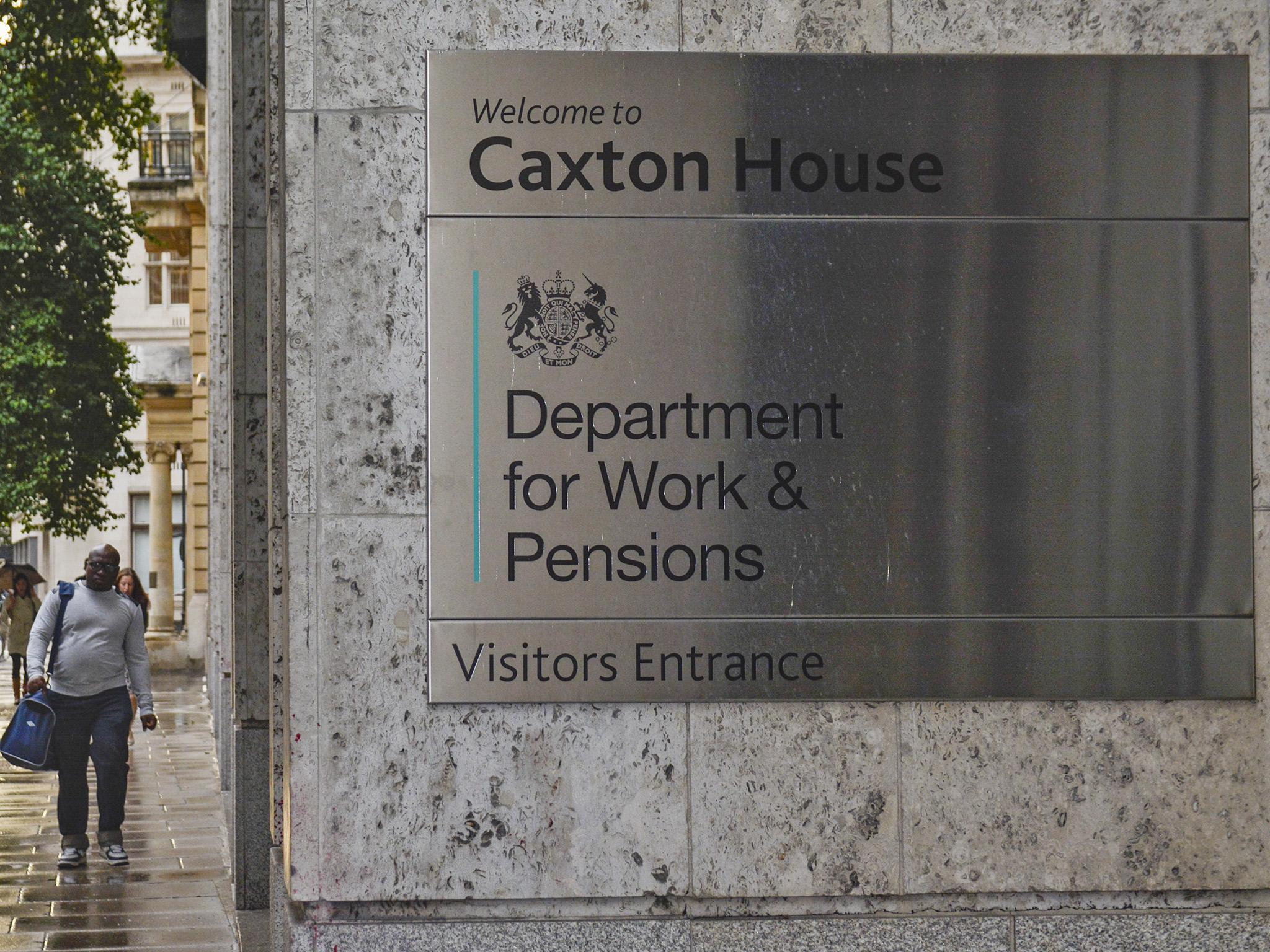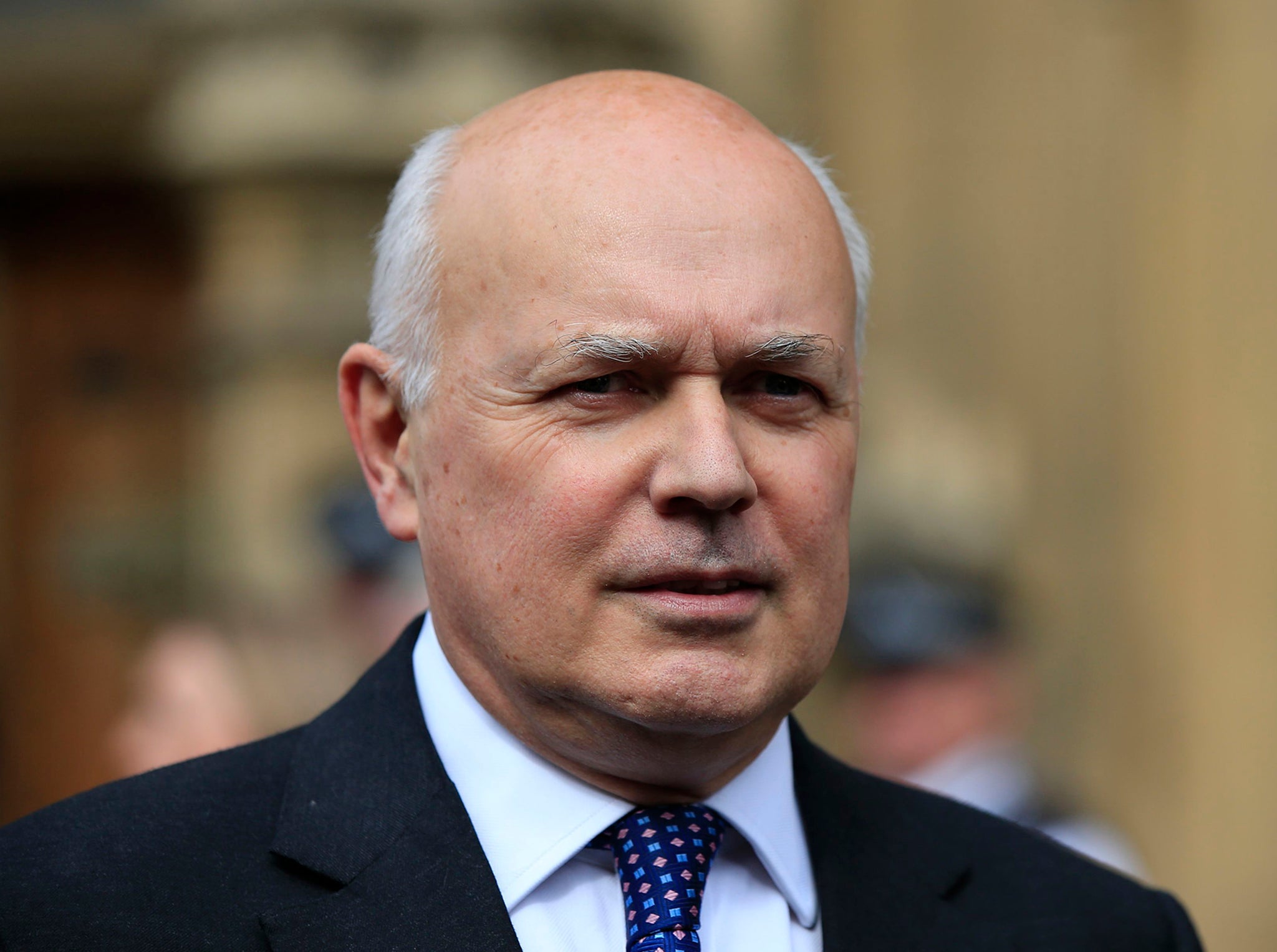Universal Credit: Iain Duncan Smith's welfare reforms shelved by new Work and Pensions Secretary
Damian Green has delayed his predecessor’s policy until at least March 2022

Your support helps us to tell the story
From reproductive rights to climate change to Big Tech, The Independent is on the ground when the story is developing. Whether it's investigating the financials of Elon Musk's pro-Trump PAC or producing our latest documentary, 'The A Word', which shines a light on the American women fighting for reproductive rights, we know how important it is to parse out the facts from the messaging.
At such a critical moment in US history, we need reporters on the ground. Your donation allows us to keep sending journalists to speak to both sides of the story.
The Independent is trusted by Americans across the entire political spectrum. And unlike many other quality news outlets, we choose not to lock Americans out of our reporting and analysis with paywalls. We believe quality journalism should be available to everyone, paid for by those who can afford it.
Your support makes all the difference.The rollout of the controversial Universal Credit scheme has been delayed again as the new Cabinet attempts to avoid “slip-ups”.
The welfare reform programme which rolls six benefit payments into one has now been delayed until March 2022, new Work and Pensions Secretary Damian Green has said.
It is one of several potential embarrassing policies the new regime under Prime Minister Theresa May is keen to avoid in their first few months in power.
Other measures, such as the obesity strategy and reforms to the pensions protection fund, have also been delayed.
A source close to No 10 told the Times: “They are trying to avoid slip-ups. That’s the reason.”
Mr Green said the delay was the "best way to secure delivery".
He said: “Universal Credit is the biggest transformation of the welfare state since its inception
“It has formed and will continue to form a key part of this Government’s action to reduce reliance on benefits and increase incentives to work.”
Universal Credit was one of Iain Duncan Smith’s flagship reforms before he dramatically resigned from the DWP in March.
The MP said he felt he had to resign as he could no longer bear the pressure from the Treasury to cut the welfare bill without touching pension entitlements.
The scheme has faced numerous problems since it first started being trialed during the last parliament.

In May, the Resolution Foundation - which had previously supported the reform - said there were “serious design flaws” which risked becoming no more than a “very complicated vehicle for cutting the benefits bill”.
Their report found that while it would incentivise around 2 million families to find work, another 2.5 million could be an average of £41 per week worse off.
More research by the Institute for Fiscal Studies found that single working parents could be left £1,000 a year worse off under the scheme.
The Trussell Trust also warned the Government’s decision to charge 45p a minute for the Universal Credit helpline could force people to choose between making a claim and buying food.
In her first week in office, Ms May has quietly shelved several key policy platforms from the David Cameron era such as the target to eradicate the fiscal deficit by 2020.
Former Chancellor George Osborne, who was regarded by many as the chief instigator of the swingeing budget cuts across Whitehall, was sacked by Ms May during the reshuffle last week.
Join our commenting forum
Join thought-provoking conversations, follow other Independent readers and see their replies
Comments